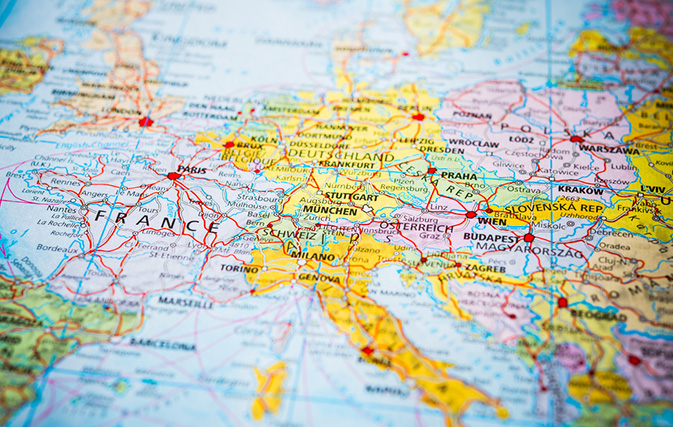BERLIN — Europe’s tourism revival is running into turbulence only weeks after countries reopened their borders, with rising infections in Spain and other nations causing increasing concern among health authorities over people bringing the coronavirus home from their summer vacations.
European countries started opening up to each other’s tourists in mid-June, but recent events have shown that the new freedom to travel is subject to setbacks. Over the weekend, Britain imposed a 14-day quarantine on travellers arriving from Spain, Norway ordered a 10-day quarantine for people returning from the entire Iberian peninsula, and France urged its citizens not to visit Spain’s Catalonia region.
In Austria, the lakeside resort town of St. Wolfgang shortened bar opening hours after an outbreak was detected on Friday. By Monday, 53 people had tested positive, including many people working in the tourism industry.
In Germany, officials decided last week to set up testing stations at airports to encourage people arriving from a long list of countries deemed high-risk – including popular destinations such as Turkey – to get tested. They will also allow people to get tested elsewhere for free within three days of arrival.
Bavaria’s governor, Markus Soeder, said he is worried about travellers returning from vacation. Referring to the Austrian ski resort that was an early European hot spot in March, he said: “My worry is not that there will be one big Ischgl, but that there will be many mini-Ischgls.”
Soeder called for tests of returning vacationers from risky areas to be made obligatory, something the federal government is considering.
“Mostly it is the considerate people who have behaved very cautiously on vacation anyway who take up the voluntary offers, while those who are more careless don’t take a voluntary test,” Chancellor Angela Merkel’s chief of staff, Helge Braun, told RBB Inforadio.
New infections in Germany have been creeping higher from a low level.
The tourism industry employs 2.6 million people in Spain and generates 12% of the country’s economic activity.
Juan Molas, the head of a national association of tourism companies, Mesa del Turismo, said Spain’s tourism sector has on average lost 5 billion euros ($5.8 billion) a week since March.
Tourism Minister Reyes Maroto said the Spanish government is trying to persuade Britain to exempt the Balearic Islands, which have a low infection rate, from the quarantine rule.
“We’re living alongside the virus. That doesn’t mean we can’t travel. We can, if we are careful,” Maroto said.
The Catalonia and Aragon regions have Spain’s most worrying virus clusters, prompting authorities to tighten restrictions in Barcelona, in a rural area around Lleida and in Zaragoza that were relaxed only a month ago.
Catalonia is facing “the 10 most decisive days of this summer,” regional leader Quim Torra said, warning that it is in everyone’s hands to prevent a “critical situation” from worsening.
Elsewhere in Europe, authorities in Belgium said COVID-19 cases are growing at an alarming rate amid a surge of infections in Antwerp. Greek authorities said they are likely to extend the mandatory use of masks at churches and shopping malls.
And in North Africa, Morocco banned most travel to and from some major cities – including Tangier, Casablanca and Marrakech, usually a popular tourist destination – to stem a small spike in cases.
In the Asia-Pacific region, many countries are still essentially banning foreign travellers or, if they do allow them to enter, requiring them to submit to tests and strict quarantine. That includes Australia, where the premier of Victoria state, Daniel Andrews, said the biggest driver in the region’s outbreak is people continuing to go to work after showing symptoms.
The crossing of borders was linked to other outbreaks in Asia. South Korea said 16 of the 25 new cases it confirmed Monday were tied to people arriving from abroad. Over the past few days, the country reported dozens of cases among crew members of a Russia-flagged cargo ship and hundreds of South Korean construction workers airlifted from Iraq.
A tally by Johns Hopkins University shows about 16.3 million confirmed cases of COVID-19 worldwide and around 650,000 deaths. The actual numbers are thought to be much higher because of limits on testing and the many minor cases that have gone unreported.
The World Health Organization said the pandemic continues to accelerate, with a doubling of cases over the past six weeks.
The U.N. health agency’s emergencies chief, Dr. Michael Ryan, stressed the need to “keep pressure on the virus.”
“Every single country where pressure has been lifted on the virus, where virus is still at community level, there’s been a jump back in cases,” he said.
